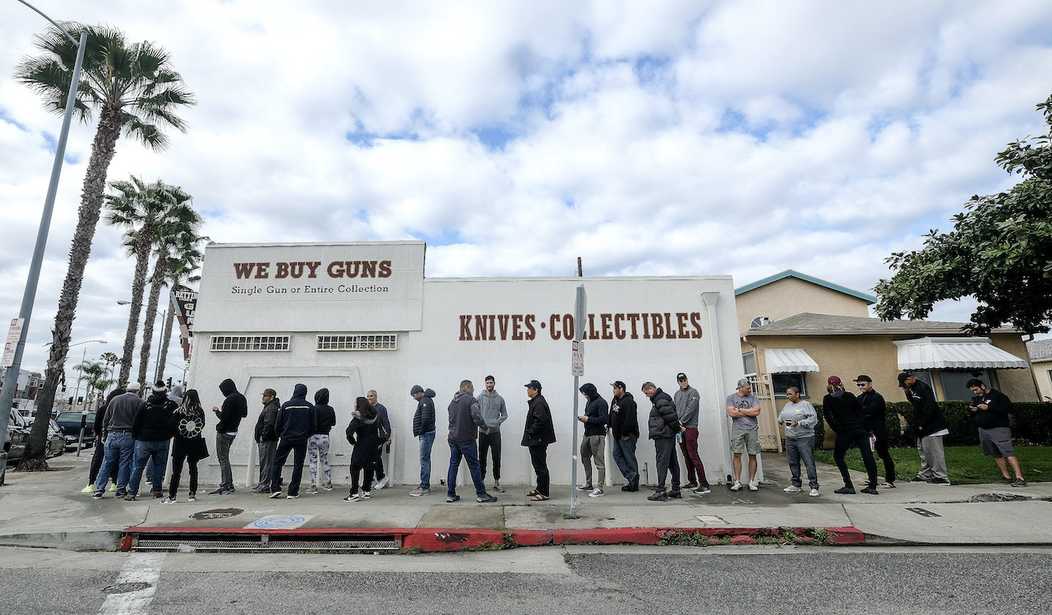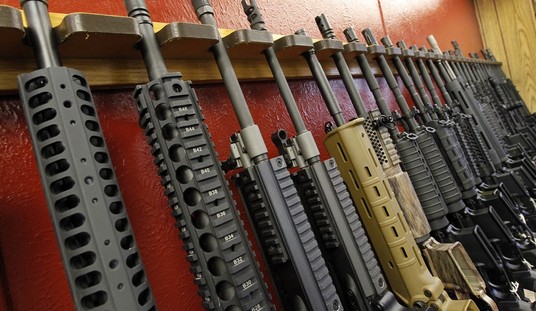Here’s a not-so-fun fact: since the Heller decision was handed down by the Supreme Court in 2008, the Ninth Circuit Court of Appeals has never once seen fit to overturn a gun control law that came before it. There’ve been plenty of trial judges that have declared various gun laws unconstitutional, and even several three-judge panels on the Ninth Circuit that have done the same, but every time that happens an en banc review of the case by a broader panel of judges has stepped in to ensure that the gun control law in question remains on the books.
On Wednesday, however, we saw a slight deviation from the Ninth Circuit’s standard practice. Rather than declaring that a particular gun control law is in full compliance with the Second Amendment, an en banc panel appears poised to avoid any discussion of the constitutionality of the closure of many gun stores in California during the early days of the COVID pandemic, when Gov. Gavin Newsom refused to declare gun stores and gun ranges “essential businesses.”
During oral arguments, several members of an 11-judge panel of the 9th U.S. Circuit Court of Appeals in Pasadena asked if a better factual record needed to be developed before it could fully assess Ventura County’s COVID-19 public health orders.
The case was dismissed before any evidence was developed regarding how anyone’s rights under the U.S. Constitution’s 2nd Amendment were burdened or why the county treated gun stores differently than “essential” businesses that could remain open, some judges said.
“At this stage, we do not need to decide whether the stay-at-home orders burden the Second Amendment,” said U.S. Circuit Judge Mary McKeown, an appointee of former President Bill Clinton.
Well, that’s not exactly true. While the trial judge dismissed the challenge to Ventura County’s order without delving into the Second Amendment question, the three-judge panel that overturned that decision did take a look at the implication of the order on the right to keep and bear arms, and found the gun stores’ closures to be a violation of the right to keep and bear arms, which must also include a right to acquire them. From Judge Lawrence Van Dyke’s opinion:
The panel first held that the Orders’ 48-day closure of gun shops, ammunition shops, and firing ranges burdened conduct protected by the Second Amendment, based on a historical understanding of the scope of the Second Amendment right. In assessing the appropriate level of scrutiny, the panel held that the district court erred by determining that Jacobson v. Massachusetts, 197 U.S. 11 (1905), applied to Appellees’ Second Amendment claim. The panel held that Jacobson, which addressed a substantive due process challenge to a state statute requiring smallpox vaccinations, did not apply here because Jacobson did not concern the specific, constitutionally enumerated right at issue, and essentially applied rational basis review. The panel declined to determine whether the Orders were categorically unconstitutional and instead, because the Orders failed to satisfy any level of heightened scrutiny, based its decision on the traditional tiered scrutiny analysis.
The panel held that the Orders’ burden on the core of the Second Amendment warranted strict scrutiny—which the Orders failed to satisfy because they were not the least restrictive means to further Appellees’ interest, especially when compared to businesses that had no bearing on fundamental rights, yet nevertheless were allowed to remain open. The panel distinguished this case from Silvester v. Harris, 843 F.3d 816 (9th Cir. 2016), which applied intermediate scrutiny in assessing California’s 10-day waiting period between purchase and possession of a firearm. The panel held that the Orders at issue here imposed a far greater burden than the 10-day delay at issue in Silvester.
The panel held that the Orders also failed intermediate scrutiny given that the County failed to provide any evidence or explanation suggesting that gun shops, ammunition shops, and firing ranges posed a greater risk of spreading COVID19 than other businesses and activities deemed “essential.” Nor did Appellees provide any evidence that they considered less restrictive alternatives for the general public. This could not survive any type of heightened scrutiny where the government bears some burden.
It seems that the en banc panel wants to ignore Van Dyke’s opinion here, probably because they don’t have a great rebuttal to his argument. Instead of addressing it head-on, the panel is likely to avoid the question altogether by relying on the opinion of the original trial judge instead.
Assistant Ventura County Counsel Christine Renshaw urged the court to simply affirm U.S. District Judge Consuelo Marshall’s initial decision to dismiss the case by the plaintiffs, saying the county’s public health closure orders were “facially neutral.”
Raymond DiGuiseppe, a lawyer for the plaintiffs, said the issues were the same as in recent U.S. Supreme Court decisions favoring churches challenging pandemic-related bans on indoor services.
“Much has happened since the start of the pandemic, but one thing is and remains constant: The government cannot suspend the exercise of constitutional rights,” DiGuiseppe said.
U.S. Circuit Judge Michelle Friedland, though, questioned “if the implication of your argument is that a public health emergency could just never have a shutdown order.”
I can’t speak for DiGuiseppe, but I don’t think that’s what he’s arguing. Instead, the argument is that the shutdown orders cannot lead to an abridgement or infringement of constitutionally protected rights. Other courts have determined that’s the case, including a federal judge in Massachusetts who ruled against a similar shutdown order impacting gun stores in that state. The judge noted that gun store employees could be required to wear masks, customers would have to shop by appointment, and social distancing measures would have to be followed (remember, this was during the early days of the pandemic), but simply ordering the stores to close because the governor considered them “non-essential” was a non-starter because he couldn’t find “anything like a substantial fit between the goals of the emergency declared by the commonwealth and the burdening of the constitutional rights.”
Ventura County didn’t have to keep gun stores closed to protect the public from the pandemic. There were other steps the county could have taken in the name of public safety that still respected the constitutional right to keep and bear arms. The county failed to do so, and now it looks like the Ninth Circuit is going to fail to hold the county to account, or to acknowledge for the first time since Heller that government action can overstep and infringe upon our Second Amendment rights.









